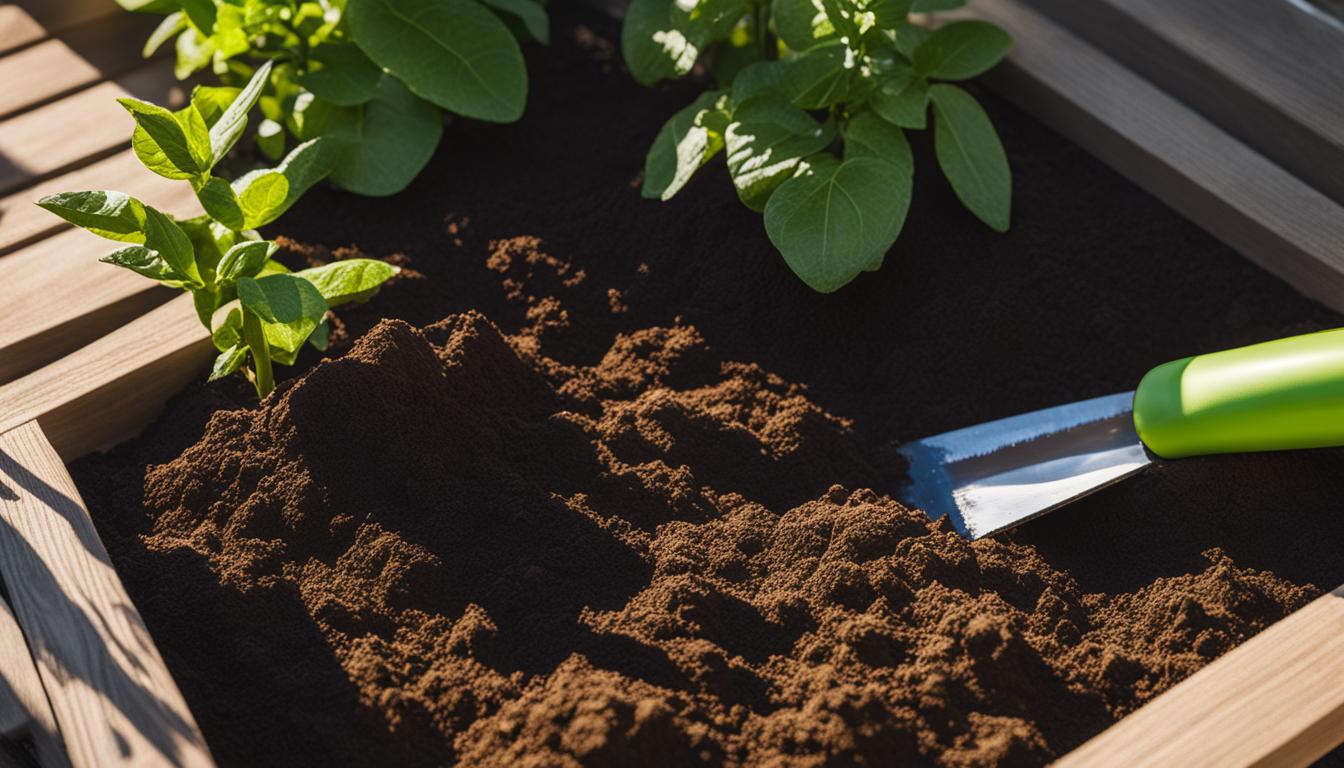
Gardeners know the importance of creating the ideal conditions for plants to thrive. One critical factor in achieving this is adjusting soil pH with garden lime. With the help of garden lime, you can effortlessly raise soil pH and correct soil acidity, ensuring that your plants have optimal growing conditions.
In this article, I will guide you through the process of adjusting soil pH using garden lime, sharing valuable tips and insights along the way.
Key Takeaways:
- Adjusting soil pH with garden lime is essential for successful gardening.
- Garden lime can help correct soil acidity and create optimal conditions for plant growth.
- Different plants have varying pH preferences, so it’s important to consider their needs.
- Methods for adjusting soil pH include using agricultural lime, sulfur, or acidifying fertilizers.
- Regular soil testing is crucial to monitor and maintain optimal pH levels.
The Importance of Soil pH in Plant Growth
When it comes to successful gardening, understanding the importance of soil pH is crucial. The pH level of soil determines its acidity or alkalinity and plays a significant role in plant growth and nutrient availability.
Most garden vegetables and flowers thrive in a slightly acidic to neutral pH range of 6 to 6.5. Adjusting soil pH with garden lime can improve nutrient uptake, promote healthy growth, and ensure optimal plant health.
So why is soil pH so important? Well, it directly affects the availability of essential nutrients to plants. When the soil is too acidic or alkaline, certain nutrients become locked up and unavailable for plants to absorb.
This can lead to nutrient deficiencies and stunted growth. By adjusting the soil pH with garden lime, you can create a more balanced environment that allows plants to take up the nutrients they need for healthy development.
Using garden lime to adjust soil pH offers numerous benefits. First and foremost, it provides a slow-release source of calcium and magnesium, which helps neutralize soil acidity and raise the pH level.
This gradual release ensures that the pH adjustment is not too rapid, avoiding any potential harm to the plants. Raising the pH with lime can improve the availability of essential nutrients, such as nitrogen, phosphorus, and potassium, ensuring that plants have access to these vital elements for optimal growth.
Overall, understanding the importance of soil pH and how to adjust it with garden lime is key to creating an ideal growing environment for your plants. By maintaining the proper pH level, you can enhance nutrient availability, promote vigorous growth, and achieve gardening success.
Benefits of Using Garden Lime
| Benefit | Description |
|---|---|
| Promotes root development | Garden lime helps create a favorable pH environment for root growth, allowing plants to establish strong root systems. |
| Improves nutrient availability | Raising soil pH with garden lime enhances the availability of essential nutrients, ensuring plants have the resources they need for healthy growth. |
| Corrects soil acidity | Garden lime neutralizes soil acidity, preventing nutrient deficiencies and creating a more balanced growing environment. |
| Enhances plant vigor | Optimal soil pH achieved through the use of garden lime promotes overall plant health, leading to more vigorous and productive plants. |
Optimal Soil pH Ranges for Different Plants
Garden lime is a versatile tool for adjusting soil acidity and creating optimal pH conditions for different plants to thrive. Understanding the preferred pH ranges for various plants will guide you in using garden lime effectively to balance soil pH.
Here are some examples of plants with their respective optimal pH ranges:
| Plant | Optimal pH Range |
|---|---|
| Raspberries | 5.5 – 6.5 |
| Strawberries | 6 – 6.5 |
| Potatoes | 5 – 6 |
| Rhododendrons | 4.5 – 6.0 |
| Lilacs | 7 – 8.5 |
| Peonies | 6.5 – 7.5 |
By adjusting the soil pH with garden lime, you can create the ideal environment for these plants to flourish. The table above presents a general guideline, but it’s always recommended to consult specific plant care guides or conduct a soil test to ensure accuracy.
Remember, pH preferences vary among different plants, and providing them with the right pH range enhances nutrient availability, root development, and overall plant health.
Methods for Adjusting Soil pH
When it comes to adjusting soil pH, there are several effective methods that you can use. One common approach is to use agricultural lime, which contains calcium and magnesium carbonates.
This type of lime helps neutralize soil acidity and raises the pH level over time. Agricultural lime is often preferred for long-term pH adjustment because it provides a slow-release source of nutrients to the soil.
Another method for adjusting soil pH is using sulfur or acidifying fertilizers. These products can be used to lower the pH of alkaline soil.
But, it’s important to follow recommended application rates and monitor pH levels closely to avoid over-acidification, which can harm plants. Gradual adjustments and regular monitoring are key to successfully adjusting soil pH.
If you’re unsure about how to use garden lime effectively, it’s always a good idea to consult with a local gardening expert or extension service.
They can provide valuable guidance on how much lime to apply based on your soil type and pH level. Additionally, they can offer insights into other soil amendments or techniques that may be beneficial for your specific gardening needs.

Remember, adjusting soil pH is an important step in creating optimal growing conditions for your plants. By using garden lime or other appropriate methods, you can ensure that your soil provides the ideal environment for healthy plant growth and nutrient uptake.
Using Lime to Raise pH
When it comes to adjusting soil pH, garden lime is a highly effective and widely used solution. Adding lime to acidic soil can gradually neutralize acidity and raise the pH level, creating a more balanced and optimal environment for plant growth.
The benefits of using garden lime extend to improving nutrient availability, promoting healthy root development, and maximizing overall plant health.
One of the key advantages of using lime is its ability to provide a slow-release source of calcium and magnesium. These essential nutrients play crucial roles in plant nutrition, supporting processes like photosynthesis, enzyme activation, and cell wall development.
By incorporating lime into the soil, gardeners can ensure that plants have access to these vital elements throughout their growth cycle.
“Using garden lime is a game-changer for gardeners looking to enhance soil pH and optimize plant growth. It’s an affordable and accessible solution that can make a noticeable difference in the health and vitality of your garden.”
Adjusting soil pH with lime is particularly beneficial for plants that prefer slightly alkaline conditions. Many garden vegetables and ornamental plants thrive in a pH range of 6 to 6.5, which is slightly acidic to neutral.
By raising the pH level with lime, gardeners can create an environment that fosters nutrient uptake, microbial activity, and beneficial soil chemistry.
Comparing Soil pH Levels for Different Plants
| Plant | Preferred Soil pH |
|---|---|
| Tomatoes | 6.0-6.8 |
| Roses | 6.0-7.0 |
| Blueberries | 4.0-5.0 |
Before applying lime to raise pH, it is essential to test the soil’s acidity level and determine the appropriate amount of lime needed.
Soil testing kits or professional laboratory analysis can provide accurate readings and recommendations for lime application. This ensures that gardeners can make precise adjustments and avoid over-application, which can lead to excessively high pH levels.
Using lime to raise pH is a reliable and time-tested method for optimizing soil conditions in the garden. Whether you’re growing vegetables, flowers, or fruits, the benefits of using garden lime go beyond adjusting pH.
It promotes nutrient availability, supports root development, and creates the ideal environment for your plants to flourish.
The Role of Soil Testing
When it comes to adjusting soil pH and improving overall soil quality, soil testing plays a crucial role in ensuring successful outcomes.
Conducting regular soil tests provides valuable insights into the pH level and nutrient content of your soil, allowing you to make accurate adjustments using garden lime or other materials.
By understanding the current soil conditions through testing, you can determine the appropriate amount of garden lime needed to adjust the pH and create the ideal environment for your plants to thrive.
Whether you need to raise or lower the pH level, soil testing provides the necessary information to make informed decisions.
Incorporating soil testing as part of your gardening routine is important for maintaining optimal soil pH and nutrient balance.
By regularly testing your soil, you can ensure that your plants have access to the necessary nutrients for healthy growth and productivity. It also helps you monitor the effectiveness of your pH adjustment efforts and make any necessary modifications along the way.
Remember, successful garden soil pH adjustment starts with knowing your soil. By utilizing soil testing and making appropriate adjustments using garden lime, you can create the ideal environment for your plants and achieve vibrant and productive gardens.
After reading this, check out our other articles on:
FAQ
Why is adjusting soil pH important for successful gardening?
Adjusting soil pH is crucial for successful gardening because it affects nutrient availability and overall plant health. It helps create optimal conditions for plants to grow and thrive.
What is garden lime, and how does it help correct soil acidity?
Garden lime is a popular option for raising soil pH and correcting soil acidity. It contains calcium and magnesium carbonates that help neutralize soil acidity and raise the pH level.
How does soil pH affect plant growth and nutrient availability?
Soil pH plays a significant role in plant growth and nutrient availability. The pH level determines the acidity or alkalinity of the soil, which affects the availability of essential nutrients to plants.
Which plants prefer acidic soil, and which plants prefer alkaline soil?
Some plants, like raspberries, strawberries, potatoes, and rhododendrons, prefer low pH or acidic soil. On the other hand, plants like lilacs and peonies thrive in soil with a high pH.
What are the different methods for adjusting soil pH?
The two common methods for adjusting soil pH are using agricultural lime and using sulfur or acidifying fertilizers. Agricultural lime raises pH, while sulfur or acidifying fertilizers lower pH.
How does garden lime raise soil pH?
Garden lime provides a slow-release source of calcium and magnesium, which gradually neutralizes soil acidity and raises the pH level. By adding lime to acidic soil, you can create a more neutral or slightly alkaline environment.
How can soil testing help with soil pH adjustment?
Conducting soil tests is essential for successful soil pH adjustment. Soil testing provides valuable information about the pH level and nutrient content of the soil, allowing you to make accurate adjustments using garden lime or other materials.


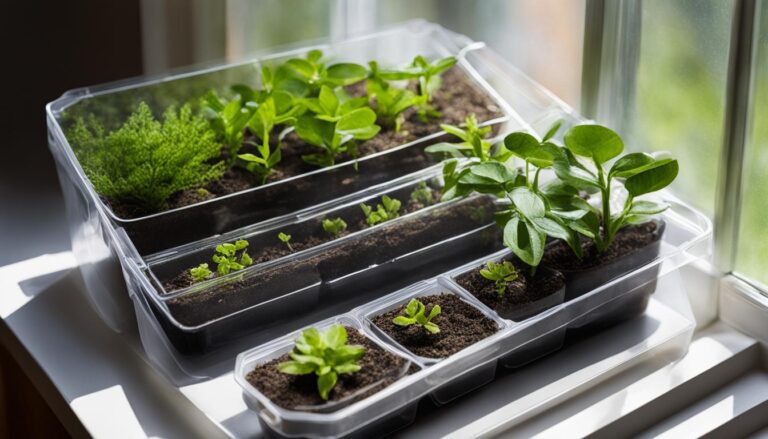
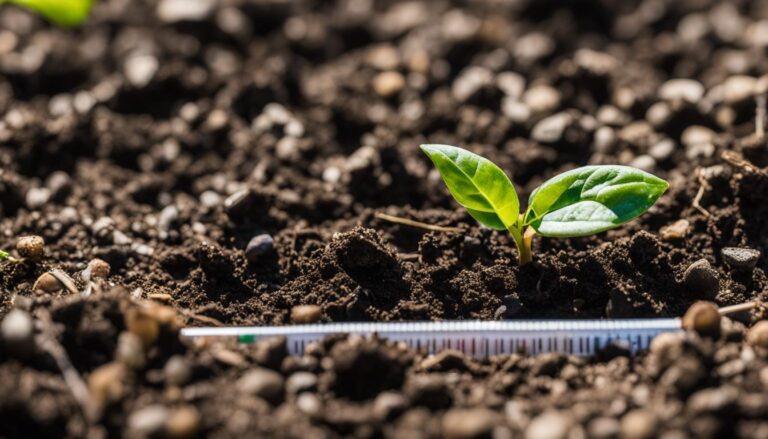
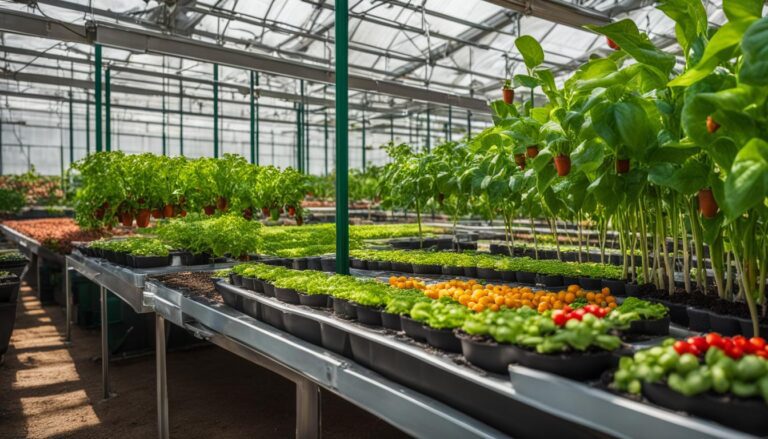
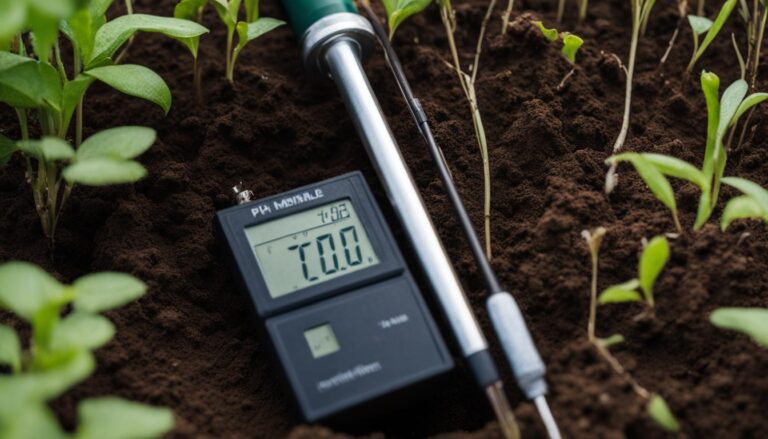
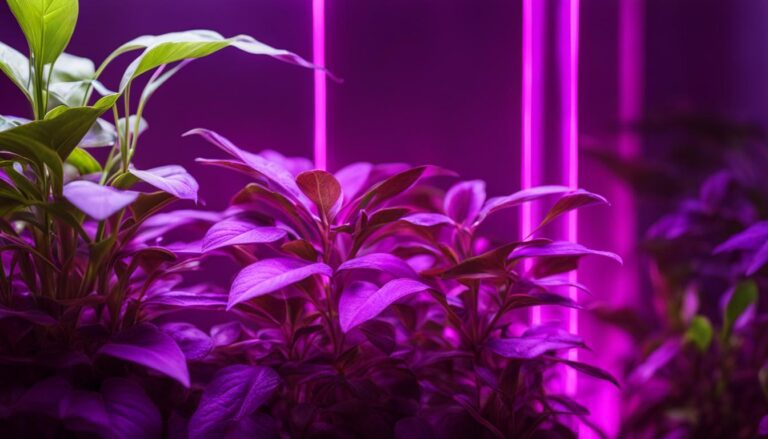
2 Comments
Comments are closed.